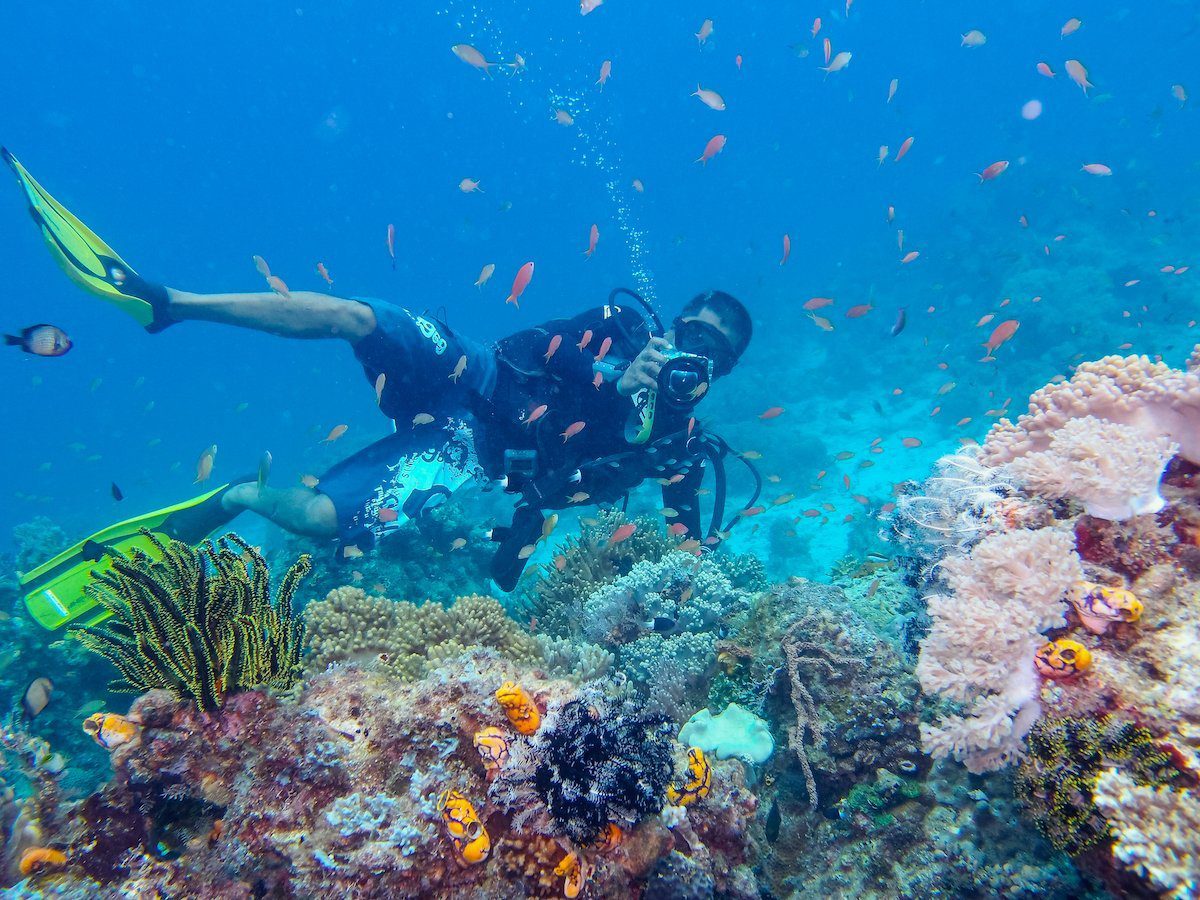The world’s coral reefs, one of the ocean’s most beautiful marine habitats, is in danger of extinction because of dramatic increases in coral diseases caused by climate change and warmer waters.
These once-vibrant reefs are unlike any other reef systems in the world, but current threats could render all or most of them damaged forever in as little as 20 years.
A new scientific study of Caribbean marine life has demonstrated that coral species are dying off, indicating dramatic shifts in the ecological balance under the sea. The study found that ten percent of the Caribbean’s reef-building corals were under threat, including staghorn and elkhorn corals. These two prominent species are now candidates to be listed as Critically Endangered on the IUCN Red List of Threatened Species.
Sometimes referred to as rainforests of the sea, shallow coral reefs occupy less than 0.1% of the world’s ocean area. Yet, they are home for at least 25% of all marine species, including mollusks, fish, crustaceans, echinoderms, sponges, tunicates, and other cnidarians.
Every square meter of the sun-drenched reef system is home to hundreds of microscopic wildlife – all of which help keep the reef balanced and healthy. Coral reefs thrive in ocean waters that provide few nutrients and are commonly found at shallow depths in tropical waters, but deep water and cold water coral reefs exist on smaller scales in other areas. The Caribbean reefs stretch from the coast of Florida to the Lesser Antilles, and each year they draw millions of visitors from all over the world. If they disappear, so will many other species that rely on reefs for shelter, reproduction, and provision.
Aside from the reef’s value to humans, these irreplaceable natural wonders play an essential role in the more massive battle for ocean conservation. A healthy reef helps sweep debris off of the coastal shelf and improve the health of the open ocean, as well as provides a home to countless animal species.
In the last few decades, the Caribbean reefs have been struck, and, without help, they may never recover. Threats to corals and other species are caused by coastal pollution, increased sedimentation in run-off water, thermal stress due to climate change, and over-fishing. Scientists explain that the Caribbean has been impacted by human development since the colonization of the Americas.
Ocean pollution has caused algae to grow all over delicate corals, blocking out needed sunlight and starving the reef-building organisms. Algae thrive on dying coral reefs. Fish that feed on algae have reduced their populations due to overfishing, which is allowing the algae to form dense growths that prevent corals from re-colonizing.
Global warming has caused a rising sea level in the Caribbean, which blocks sunlight, though somewhat more slowly. A warmer ocean is also more acidic, which can be deadly to coral and has left hundreds of miles of reef bleached white. Even worse, domestic aquarium owners in Florida have dumped pet lion-fish into the ocean, allowing this Indonesian fish to become an unstoppable predator that has all but driven out native fish.
One positive note is the discovery that some healthy Caribbean coral reefs still exist in well-managed marine protected areas, where direct human impacts are reduced, allowing corals to thrive. However, marine conservation and a global effort to reverse climate change are necessary to preserve these beautiful marine habitats. Marine protected areas (MPAs) are designated areas that provide various kinds of protection to the ocean intended to promote responsible fishery management and habitat protection. MPAs can encompass both social and biological objectives, including reef restoration, aesthetics, biodiversity, and economic benefits.
According to the Caribbean Coral Reefs Status Report, states that regulate overfishing mainly fish key to the survival of coral reef like parrotfish, reduce human pressure on the area, and control pollution, may minimize coral decline or even reverse it. The report proved that healthier reefs are those with large populations of parrotfish in countries that protect these key fishes and sea urchins; banning fish trapping and spearfishing would result in “resilient reefs.”
The designation of a reef as a marine park, national monument, biosphere reserve, or world heritage marine site can offer protection. For example, the Galapagos Islands, Papahānaumokuākea Marine National Monument, the Great Barrier Reef, Henderson Island, Palau are world heritage sites.
In recent years, several solutions for the restoration of coral reefs have emerged. One of them is Coral aquaculture, also known as coral farming or coral gardening. The “gardening” process bypasses the early growth stages of corals when they are most at risk of dying. Coral seeds are grown in nurseries, then replanted on the reef.
The University of Hawaii operates a Coral Reef Assessment and Monitoring Program to help restore coral reefs in Hawaii by relocating healthy coral and transplanting it with the help of divers, to a site relatively close to the channel. While attaching the coral to transplant sites, they discovered that coral placed on hard rock grew well. There were no environmental effects observed as a result of the transplantation process. These coral restoration efforts aim at rebuilding the ecological functioning of coral reefs.
Something important to keep in mind is that it is easier to protect the healthy reef, rather than try to restore it once it is affected or gone. Restoration efforts must be matched with education, outreach, and conservation, involving the public as a partner for marine conservation programs so that we can give coral reefs a chance to survive in the future.

















